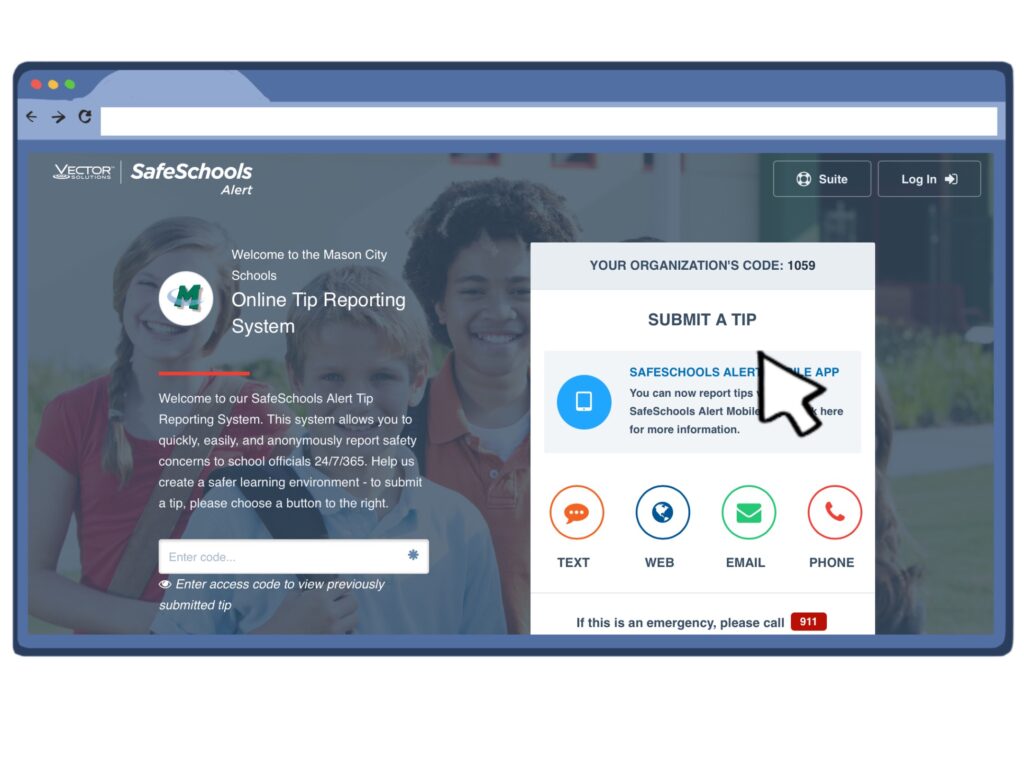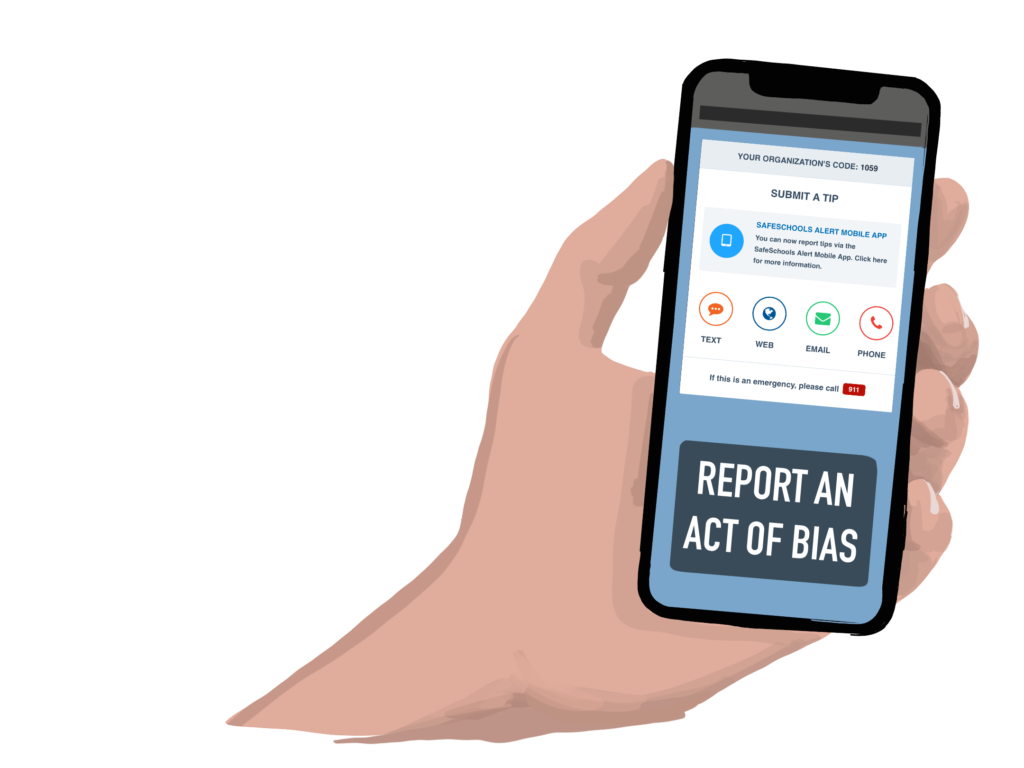Swastika incident tests efficacy of Safeschool’s Tipline for Acts of Bias
Shravani Page | Staff Writer

The Mason community takes bias seriously.
That was made evident when community members used the bias reporting option in the SafeSchools Tipline to report a swastika that had been marked on a playground at Mason Early Childhood Center (MECC) on March 22.
Mason’s response team was able to generate a quick response from the numerous tips reported by community members through the SafeSchools Tipline. Tracey Carson, Mason City Schools’ Public Information Officer and leader of the response team, felt the response showed how the Mason community does not tolerate these acts and keeps one another safe by stepping up to bias.
The SafeSchools Tipline has been part of Mason’s safety resources for nearly 20 years, but this is the first year members of the community have been given the option to report actual acts of bias. In years’ past the Tipline was often used to report the presence of drugs or the potential of someone getting hurt, now as the school community embraces a more proactive approach to eliminating discrimmation the district decided the Tipline could also be a valuable tool in reporting acts of bias and discrimmination.
“We saw [the Tipline] starting to get used as a way to report concerns about a student’s mental health,” Carson said. “What we found is there was really a need to have it as an opportunity to report these Acts of Bias.”

The Mason community was quick to take advantage of the tipline and to report the graffitied swastika as an “Act of Bias”.
According to Carson, many people may interpret offensive signs and symbols as jokes, however, they can be offensive and may even spark distress in the community.
“[Symbol acts] can lead to violence. When we think about discrimination and violence, we learn that symbols matter,” Carson said. “We were really grateful that community members saw it and responded.”
After learning that the students who committed the act attend Mason Middle School (MMS), the incident functioned as a catalyst for future education aimed at bias. MMS Principal Lauren Gentene plans on implementing more bias training for the students in her building. With events such as “Say Something Week” coming up, Gentene feels the school has an opportunity to discuss bias in further detail.
“Bias is actually something that we address regularly,” Gentene said. “About once a month, we do a culture lesson with our students and we’ve done ‘Step Up To Bias’ lessons before across the building.”
Gentene believes that as an educational leader she needs to
use this moment use this moment as an opportunity to try to educate. She feels students need to learn the meaning behind hate speech like the anti-semitic drawings that appeared on the middle school playground and why this type of behavior cannot be tolerated.
While there were some who did participate in the drawings Gentene pointed out that there were kids who didn’t participate but were present. She felt like when these events do occur students must learn “how [to] reestablish and neutralize the threat and get back to safety.” Gentene wants students to learn from the experience, even those who “didn’t speak up who could have stopped it or “the kids who felt fear because of it.”
Gentene hopes she can continue to encourage students to speak up when they see something and to especially step up to bias. The graffiti incident at MECC left many members of the community feeling threatened and questioning where they belong. Gentene believes it is important to follow these events with action and simply saying something is offensive isn’t
gjkfjglfdjkgfjlgjfljgfkjgenough.
“What we have to help our students understand is when families showed up to the playground and saw that drawing, it invoked fear and questions. Questions about whether they felt welcome here and safe here,” Gentene said. “It’s not just that it’s offensive, it’s that we want to be a community where everybody feels safe and feels like they belong. Speaking up is a responsibility to each other, to our families, but most importantly to ourselves.”
Carson believes silence is a stance and when people don’t speak up that act of silence does send a message. She feels it is important to report anything that could be discriminatory if if there is some doubt about whether or not it should be reported.
“What we know is that when we do take a stand, sometimes in solidarity with somebody who’s next to us, it changes the culture,” Carson said. “It might be the first time that that person even has had that moment to consider what they were doing, because they may not have intended it to be what it is, and it gives them an opportunity to learn.”
Graphic by Rachel Cai
